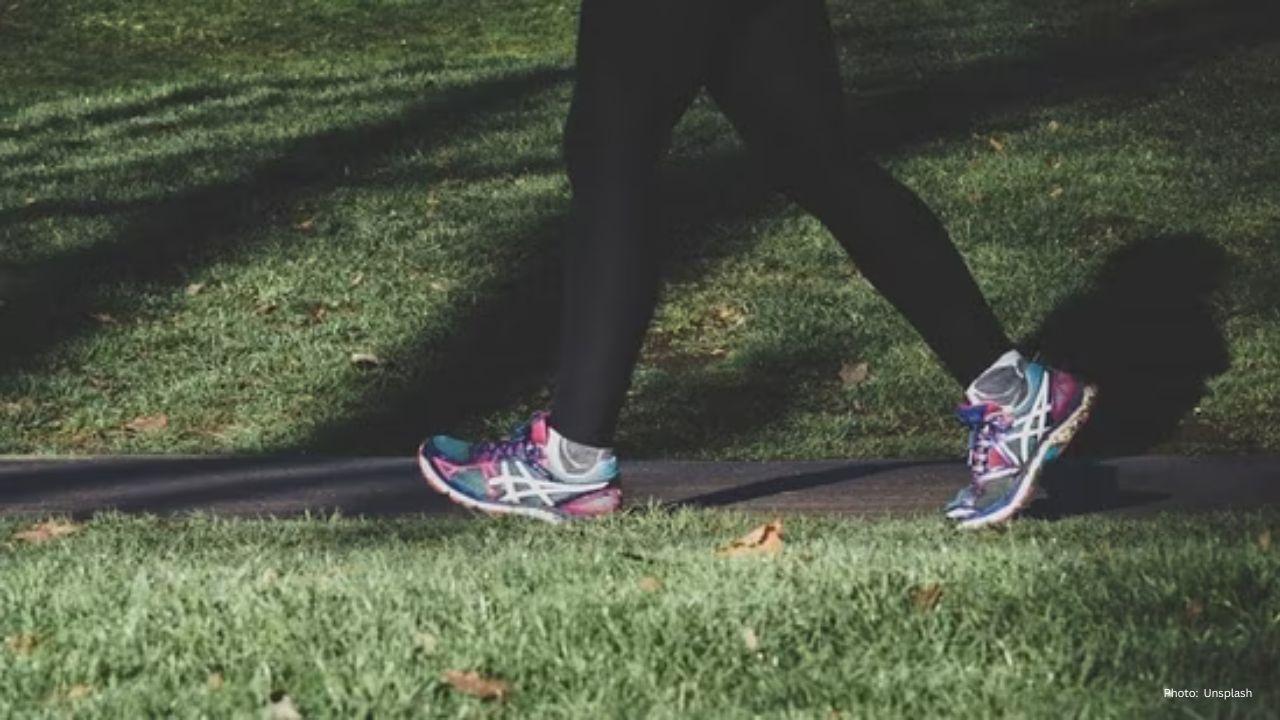You have not yet added any article to your bookmarks!

Join 10k+ people to get notified about new posts, news and tips.
Do not worry we don't spam!

Post by : Saif Rahman
Walking is one of the simplest exercises available. It requires no equipment, gym membership, or financial investment. Research has consistently found that walking plays a vital role in maintaining health and promoting long-term fitness. Recently, Dr. Saurabh Sethi, an AIIMS-trained gastroenterologist, shared insights on how a mere 10-minute walk after meals can bring about significant changes within the body. This practice has gained traction due to its simplicity and effectiveness for individuals of all ages.
After consuming food, the body engages in intense activity. The stomach begins its digestive work, glucose enters the bloodstream, and hormones are released. Engaging in a brief walk post-meal aids this process, helping the body manage the meal more effectively. Dr. Sethi recommends walking for 10 to 12 minutes following eating, at a pace that can range from leisurely to brisk.
An important advantage of this practice is its potential to lower blood sugar levels. Remaining seated or lying down after eating can cause glucose spikes in the blood. In contrast, moving allows glucose to enter muscles slowly and evenly, which Dr. Sethi claims can decrease these spikes by up to 30 percent. This can lead to reduced insulin release and more stable energy levels. Consequently, people may experience fewer energy dips, lower inflammation, and enhanced daily vitality, as numerous studies indicate post-meal walks can rival some medications in managing glucose control.
Additionally, brief walks contribute to better insulin sensitivity. When people move, their muscles absorb sugar from the bloodstream more efficiently without requiring as much insulin. This enhances overall metabolic function, which is particularly beneficial for those at risk of or already struggling with diabetes. Maintaining good insulin response is crucial for long-term cardiovascular and metabolic health.
Moreover, walking after meals promotes improved digestion. The motion stimulates the digestive tract and activates the vagus nerve, which facilitates the movement of food through the stomach and intestines. As a result, people may experience less discomfort, reduced constipation, and improved digestive flow. Simple movement can address issues related to sluggish digestion, allowing the body to function optimally.
Bloating post-meal is a common concern. Gas can accumulate if digestion is sluggish. A short walk encourages the release of trapped gas, relieving discomfort. Dr. Sethi notes that this is particularly beneficial for individuals suffering from conditions such as irritable bowel syndrome or slow transit. Instead of relying on medication, many find sufficient relief simply by engaging in a gentle stroll.
Post-meal walks are also effective in reducing acid reflux. Resting or sitting still after eating can lead to prolonged food retention in the stomach, elevating acid levels. Walking helps to move food downwards, thereby minimizing the risk of heartburn. Dr. Sethi emphasizes that even a brief 10-minute walk after dinner can yield noticeable results.
Another advantage highlighted by Dr. Sethi is the improvement in triglyceride levels. Blood triglyceride levels tend to rise after meals, especially when consuming fatty foods. Walking assists the body in processing these fats more efficiently, ultimately reducing long-term risks associated with heart disease, fatty liver, inflammation, and obesity. He refers to this habit as a “micro-exercise with macro impact,” which encapsulates the idea that a small effort can lead to significant benefits.
Establishing a routine of post-meal walks can even enhance sleep quality. By keeping blood sugar stable and minimizing reflux, individuals may find it easier to fall asleep, sleep longer, and wake up feeling refreshed. A relaxed digestive system supports better hormone regulation, appetite control, mood, and decision-making the following day, especially for those who dine late or have sleep difficulties.
Dr. Sethi suggests that while the optimal time for walking is post-lunch or dinner, it can be beneficial after any substantial meal. Consistency in this practice outweighs speed or intensity. Even a gentle daily walk can yield robust health outcomes. Many assume that health improvements require rigorous workouts or strict regimens, yet this simple habit demonstrates that even minor daily changes can greatly enhance overall well-being.
Nonetheless, the insights provided are for general understanding and should not replace professional medical advice. Individuals with serious health conditions should consult their healthcare provider before making lifestyle or exercise adjustments. For most people, engaging in a 10-minute walk after eating is a harmless yet highly effective practice for supporting digestion, metabolic health, sleep quality, and comprehensive body function.










Landfill Collapse in Cebu Kills Four, Dozens Missing as Rescue Continues
A massive landfill collapse in Cebu City has left four dead and dozens missing as rescuers race agai

Netanyahu Says Israel Aims to End US Military Aid Within 10 Years
Israeli PM Benjamin Netanyahu says Israel plans to gradually stop relying on US military aid within

Dhurandhar’s Box Office Roars On: Ranveer Singh’s Spy Thriller Shatters Records
Ranveer Singh’s Dhurandhar earns ₹3.6 Cr on Day 36, totaling ₹844.45 Cr in India. The spy thriller s

FCC Clears SpaceX to Launch 7,500 More Starlink Satellites Worldwide
SpaceX gets FCC approval to add 7,500 new Starlink satellites and upgrade frequencies, boosting glob

Indonesia Blocks Elon Musk’s Grok AI Over Unsafe AI Content
Indonesia temporarily blocks Elon Musk’s Grok chatbot due to unsafe AI-generated images. The move ai

PV Sindhu’s Malaysia Open Run Ends with Semifinal Loss to Wang Zhiyi
PV Sindhu’s comeback at Malaysia Open ends in semifinals as China’s Wang Zhiyi wins 21-16, 21-15. Si